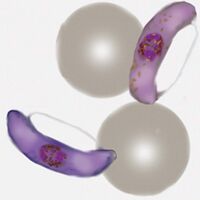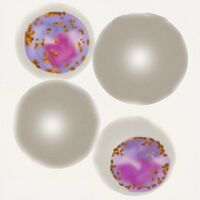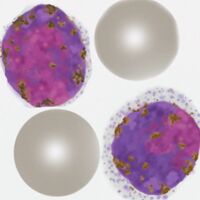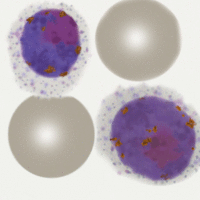Biology of the gametocyte: Difference between revisions
From haematologyetc.co.uk
No edit summary |
No edit summary |
||
| Line 17: | Line 17: | ||
---- | ---- | ||
{| class="wikitable" style="border-style: | {| class="wikitable" style="border-style: none; border-width: 2px; border-color: gainsboro; color:black" | ||
|colspan="1" style = "font-size:100%; color:black; background: | |colspan="1" style = "font-size:100%; color:black; background: gainsboro ||'''Morphological features and relevance''' | ||
|} | |} | ||
| Line 40: | Line 40: | ||
---- | ---- | ||
{| class="wikitable" style="border-style: | {| class="wikitable" style="border-style: none; border-width: 2px; border-color: gainsboro; color:black" | ||
|colspan="1" style = "font-size:100%; color:black; background: | |colspan="1" style = "font-size:100%; color:black; background: gainsboro ||'''Relevance of gametocytes to clinical biology''' | ||
|} | |} | ||
Revision as of 17:31, 2 November 2024
Navigation
>Main Malaria Index
>>Malaria Biology Index
>>>Gametocyte Biology
Biology of the Gametocyte
|
The sexual form of the malarial parasite has either male or female form (a higher percentage are female). Generally male gametocytes (microgametocytes) are smaller then the female form (macrogametocytes). They are effectively “dormant” in blood and only develop further when ingested by a mosquito (the temperature drop in the mosquito foregut rapidly activates them to a single female gamete or 8 male gametes (see section on re-infection of the mosquito).
→ Click for the clinical gametocyte gallery
|



